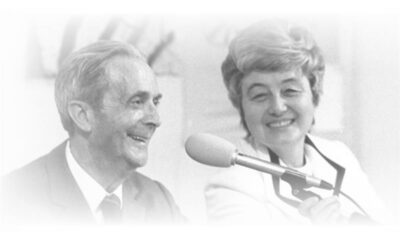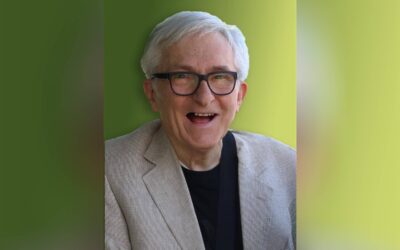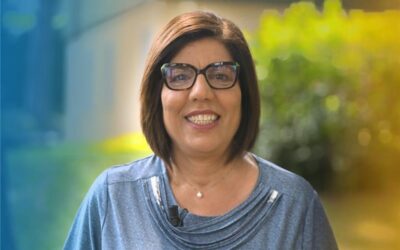Ten days of protests with hundreds of people arrested and five victims. An appeal for dialogue by the Ecuadorian Bishops’ Conference and the United Nations finally bears fruit. The Focolare Movement’s commitment to contribute towards peace. On October 2 Ecuador’s President, Lenin Moreno announced a package of austerity measures. The decision to end fuel subsidies caused a rise in the price of a number of necessary commodities that triggerred immediate protests, and a state of emergency was declared. Ecuador, a Latin American country with more than 17 million inhabitants (71.9% mestizos, 7.4% montubio population, 7.8% afro-Ecuadorian, 7.1% indigenous Ecuadorians and 7% white Ecuadorians), found itself forced into peaceful protests, that did not need much to become violent and provoke repressive action by law enforcement agencies. “Peace is over” wrote a young Ecuadorian, who also sent me a video showing anti-riot tanks in the square. A friend who wrote to me a few days later, related: “I heard xenophobic expressions and stories about mestizos and indigenous people, who were betrayed and then attacked. It is so painful to hear about women and children who lost their lives. It has been said that five were killed during unexpected bombings at dawn. Despite all this suffering, people are peaceful and the weapons used during their protests were large bucketfuls of water to extinguish the fires caused by bombs, bicarbonate, vinegar, masks against gases and eucalyptus branches. On the front line there were youth, aged between twenty and thirty, who were not afraid to die. At the square, there were no indigenous people in the evening, but there were about 30 thousand others, people of all ages and colours, all feeling let down because the government was not doing anything about the situation. The National Assembly declared to be on vacation leave, and so there is no channel for dialogue”. In this delicate situation, the first to come forward were the bishops who together with the UN/Ecuador proposed dialogue, in particular between the indigenous people and the Government. After meeting the parties, they convened a meeting on Sunday October 13. They wrote: “We rely on everyone’s good will to establish a dialogue in good faith and find a prompt solution for the country’s complex situation”. Even the Focolare Movement expressed its commitment towards peace. “We are living this painful present situation by being generous, overcoming fear and putting aside our convictions, while we try to understand the others and put ourselves in their shoes. We feel a sense of helplessness when we see brothers fighting against one another. We would like our actions to be a compendium of heart, mind and hands, while we ask ourselves: is what I feel, think and do an expression of true love for the other, whoever he may be? Do my actions contribute towards dialogue, towards peace? We believe that every citizen has the right to demonstrate in favour of justice and democracy, while we reject all forms of violence from wherever they may come. We would like to highlight our preference for the less privileged, as the Pope teaches us. We want to be more radical in living the Gospel by our love for Jesus forsaken, who is presently revealing himself in the suffering faces of our indigenous brothers, in injured policemen, in young men’s faces smeared with blood, in those who mourn their loved ones killed unjustly, in journalists who have been assaulted, in those who attack others because of different opinions, in the ones who prefer to ignore what is happening, in those who spread false news and in stigmatized immigrants”.  Promoting dialogue among the many different cultures present Ecuador is a primary commitment for the Focolare Movement in this country. Today, this dialogue seems to be compromised. Theysaid: “This difficult situation could lead us to think that all our arduous efforts in favour of intercultural dialogue and unity have been in vain. But no, they aren’t! Maybe God is calling each one of us to intensify our Christian living and act as builders of peace wherever we are”. And they concluded: “Let us ask the Holy Spirit to enlighten us all on how to proceed in these difficult times”. The “time-out” for peace is a daily appointment. As I write (while there have been more than 700 arrests and 5 victims), an agreement has been reached. The directives issued by the Government on October 3 have been revoked and both parties will be involved in drafting new ones. We hope that all protests will stop and that social peace will be restored.
Promoting dialogue among the many different cultures present Ecuador is a primary commitment for the Focolare Movement in this country. Today, this dialogue seems to be compromised. Theysaid: “This difficult situation could lead us to think that all our arduous efforts in favour of intercultural dialogue and unity have been in vain. But no, they aren’t! Maybe God is calling each one of us to intensify our Christian living and act as builders of peace wherever we are”. And they concluded: “Let us ask the Holy Spirit to enlighten us all on how to proceed in these difficult times”. The “time-out” for peace is a daily appointment. As I write (while there have been more than 700 arrests and 5 victims), an agreement has been reached. The directives issued by the Government on October 3 have been revoked and both parties will be involved in drafting new ones. We hope that all protests will stop and that social peace will be restored.
Gustavo E. Clariá




0 Comments